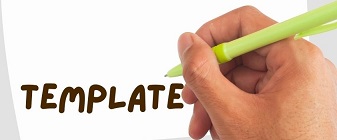The Impact of IKM on Teacher Competence and Professionalism
(1) Kementerian Pendidikan, Kebudayaan, Riset, dan Teknologi, Indonesia
(*) Corresponding Author
DOI: https://doi.org/10.26858/ja.v9i2.36982
Abstract
This study aims to analyze the impact of Implementation of the Independent Curriculum (Indonesia: Implementasi Kerikulum Merdeka/IKM) on teacher competence, professionalism and teacher professional development. This research is an exploratory research, namely research that seeks to explore the causes and impacts and factors that influence it. The results showed that the IKM had a significant impact on the competence, professionalism and development of the teaching profession. Based on competence, the impact of IKM on teacher competence states that 47% of teachers are highly competent and 51% of teachers are competent. Judging from the professionalism of teachers in teaching, it is proven that 97% of teachers understand and master the assessment of students, 99% of teachers are able to design learning and are very good at learning concepts and materials. Meanwhile, from the development of the teaching profession, most teachers have the habit of self-reflection and have emotional maturity. Teachers also have a high concern for students and have a spirit of mutual cooperation.
Full Text:
PDFReferences
Cameron, K. (1978). Measuring Organizational Effectiveness in Institutions of Higher Education. Administrative Science Quarterly, 23(4), 604. https://doi.org/10.2307/2392582
Crawford, E. O., Higgins, H. J., & Hilburn, J. (2020). Using a global competence model in an instructional design course before social studies methods: A developmental approach to global teacher education. The Journal of Social Studies Research, 44(4), 367–381. https://doi.org/https://doi.org/10.1016/j.jssr.2020.04.002
Creswell, J. W., & Clark, V. L. P. (2017). Designing and conducting mixed methods research. Sage publications.
Creswell, J. W., & Creswell, J. D. (2017). Research design: Qualitative, quantitative, and mixed methods approaches. Sage publications.
Crook, C., & Bligh, B. (2016). Technology and the dis-placing of learning in educational futures. Learning, Culture and Social Interaction, 11, 162–175. https://doi.org/https://doi.org/10.1016/j.lcsi.2016.09.001
De Smul, M., Heirweg, S., Van Keer, H., Devos, G., & Vandevelde, S. (2018). How competent do teachers feel instructing self-regulated learning strategies? Development and validation of the teacher self-efficacy scale to implement self-regulated learning. Teaching and Teacher Education, 71, 214–225. https://doi.org/https://doi.org/10.1016/j.tate.2018.01.001
Ersig, A. L., & Williams, J. K. (2018). Student and Parent Perspectives on Severe Food Allergies at College. Journal of Pediatric Health Care, 32(5), 445–454. https://doi.org/https://doi.org/10.1016/j.pedhc.2018.03.006
Fetters, M. D., Curry, L. A., & Creswell, J. W. (2013). Achieving integration in mixed methods designs—principles and practices. Health services research, 48(6pt2), 2134–2156.
Garcia-Morales, V. J., Jimenez-Barrionuevo, M. M., & Gutierrez-Gutierrez, L. (2012). Transformational leadership influence on organizational performance through organizational learning and innovation. Journal of Business Research, 65, 1040–1050.
Hülsing, T., Korte, W. B., Fonstad, N., Lanvin, B., Cattaneo, G., Kolding, M., Lifonti, R., & Van Welsum, D. (2013). e-Skills for Competitiveness and Innovation Vision, Roadmap and Foresight Scenarios Final Report (Nomor March 2013).
John W Creswell. (2013). Research Design Pendekatan Kualitatif, Kuantitatif, dan Mixed (Tiga). Pustaka Pelajar.
McCombs, B. L., Daniels, D. H., & Perry, K. E. (2008). Children’s and teachers’ perceptions of learner-centered practices, and student motivation: Implications for early schooling. Elementary School Journal, 109(1), 16–35. https://doi.org/10.1086/592365
Naji, K. K., Du, X., Tarlochan, F., Ebead, U., Hasan, M. A., & Al-Ali, A. K. (2020). Engineering students’ readiness to transition to emergency online learning in response to COVID-19: Case of Qatar. Eurasia Journal of Mathematics, Science and Technology Education, 16(10). https://doi.org/10.29333/EJMSTE/8474
Saariaho, E., Toom, A., Soini, T., Pietarinen, J., & Pyhältö, K. (2019). Student teachers’ and pupils’ co-regulated learning behaviours in authentic classroom situations in teaching practicums. Teaching and Teacher Education, 85, 92–104. https://doi.org/https://doi.org/10.1016/j.tate.2019.06.003
Saggaf, M. S., Salam, R., & Rifka, R. (2017). The Effect of Classroom Management on Student Learning Outcomes. International Conference on Education, Science, Art and Technology, 98–102.
Saggaf, M. S., Salam, R., & Wirawan, H. (2017). The Influence of Teacher’s Pedagogic Competence on Learning Motivation of Student of Office Administration Expertise Package. 8th International Conference of Asian Association of Indigenous and Cultural Psychology (ICAAIP 2017).
Sari, M. M. E. (2017). The role of learning management of Islamic boarding school (Pesantren) in improvement of their students religious tolerance in West Java-Indonesia. International Journal of Innovation and Applied Studies, 19(1), 24.
Sobarna, A., Hambali, S., Sutiswo, S., & Sunarsi, D. (2020). The influence learning used ABC run exercise on the sprint capabilities. Jurnal Konseling dan Pendidikan, 8(2), 67–71.
Sujana, C. (2020). The Analysis Of Children’s Education Implementation That Involves Criminal At Child Development Institute. JED (Journal of Etika Demokrasi), 5(2), 164–176.
Wang, X. (2001). A policy analysis of the financing of higher education in China: Two decades reviewed. Journal of Higher Education Policy and Management, 23(2), 205–217.
Yuangga, K. D., & Sunarsi, D. (2018). The Influence of Procrastination and Low Time Management on Student Self Efficacy (at MA Soebono Mantofani). PINISI Discretion Review, 2(1), 85–92.
Article Metrics
Abstract view : 134 times | PDF view : 20 timesRefbacks
- There are currently no refbacks.
Copyright (c) 2022 Radenrara Sutaris

This work is licensed under a Creative Commons Attribution 4.0 International License.






























 under a
under a